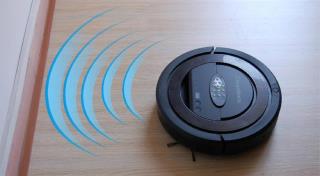Installing Fork CMS on Debian 9
Using a Different System? Fork is an open source CMS written in PHP. Forks source code is hosted on GitHub. This guide will show you how to install Fork CM
Fork is an open source CMS written in PHP. Fork's source code is hosted on GitHub. This guide will show you how to install Fork CMS on a fresh Debian 9 Vultr instance.
cURLlibxmlDOMSimpleXMLSPLPDO (with MySQL driver)mb_stringiconvGD2 graphics libraryjsonPCREintlCheck the Debian version.
lsb_release -ds
# Debian GNU/Linux 9.4 (stretch)
Ensure that your system is up to date.
apt update && apt upgrade -y
Install required packages.
apt install -y apt-transport-https sudo curl wget dirmngr
Create a new non-root user account with sudo access and switch to it.
adduser johndoe --gecos "John Doe"
usermod -aG sudo johndoe
su - johndoe
NOTE: Replace johndoe with your username.
Set up the timezone.
timedatectl list-timezones
sudo timedatectl set-timezone Region/City
Debian does not provide the latest PHP version in its default software repositories. We’ll need to add a community maintained third-party repository.
sudo wget -O /etc/apt/trusted.gpg.d/php.gpg https://packages.sury.org/php/apt.gpg
echo "deb https://packages.sury.org/php/ $(lsb_release -sc) main" | sudo tee /etc/apt/sources.list.d/php.list
sudo apt update
Install PHP 7.2 and required PHP extensions.
sudo apt install -y php7.2 php7.2-cli php7.2-fpm php7.2-common php7.2-curl php7.2-mbstring php7.2-gd php7.2-intl php7.2-mysql php7.2-xml php7.2-json
Check the version.
php --version
PHP 7.2.5-1+0~20180505045740.21+stretch~1.gbpca2fa6 (cli) (built: May 5 2018 04:57:44) ( NTS )
Copyright (c) 1997-2018 The PHP Group
Zend Engine v3.2.0, Copyright (c) 1998-2018 Zend Technologies
with Zend OPcache v7.2.5-1+0~20180505045740.21+stretch~1.gbpca2fa6, Copyright (c) 1999-2018, by Zend Technologies
Install MySQL/MariaDB.
sudo apt install -y mysql-server
Check MySQL/MariaDB version.
mysql --version
# mysql Ver 15.1 Distrib 10.1.26-MariaDB, for debian-linux-gnu (x86_64) using readline 5.2
Run mysql_secure installation script to improve MySQL security and set the password for MySQL root user.
sudo mysql_secure_installation
Connect to MySQL shell as the root user.
sudo mysql -u root -p
# Enter password
Create an empty MySQL database and user for Fork CMS, and remember the credentials.
CREATE DATABASE dbname;
CREATE USER 'username'@'localhost' IDENTIFIED BY 'password';
GRANT ALL PRIVILEGES ON dbname.* TO username@localhost;
FLUSH PRIVILEGES;
EXIT;
Install Nginx.
sudo apt install -y nginx
Check the version.
sudo nginx -v
# nginx version: nginx/1.10.3
Run sudo vim /etc/nginx/sites-available/fork.conf and configure Nginx for Fork.
server {
listen 80;
root /var/www/fork;
index index.php index.html;
server_name example.com;
location / {
# Checks whether the requested url exists as a file $uri or directory $uri/ in the root, else redirect to /index.php.
try_files $uri $uri/ @redirects;
}
location @redirects {
rewrite ^ /index.php;
}
location ~ \.php$ {
try_files $uri =404;
include fastcgi_params;
fastcgi_pass unix:/var/run/php/php7.2-fpm.sock; # Make sure to doublecheck this!
fastcgi_index index.php;
fastcgi_read_timeout 60;
fastcgi_split_path_info ^(.+\.php)(/.+)$;
fastcgi_param SCRIPT_FILENAME $document_root$fastcgi_script_name;
}
# Don't pollute the logs with common requests
location = /robots.txt { access_log off; log_not_found off; }
location = /favicon.ico { access_log off; log_not_found off; }
# As Fork CMS has the app_root as doc_root, we need to restrict access to a few things for security purposes!
location ~* ^/(composer\..*|vendor\/.*|Procfile$|\.git\/.*|src\/Console.*|.*\.gitignore|\.editorconfig|\.travis.yml|autoload\.php|bower\.json|phpunit\.xml\.dist|.*\.md|app\/logs\/.*|app\/config\/.*|src\/Frontend\/Cache\/CompiledTemplates.*|src\/Frontend\/Cache\/Locale\/.*\.php|src\/Frontend\/Cache\/Navigation\/.*\.php|src\/Frontend\/Cache\/Search\/.*|src\/Backend\/Cache\/CompiledTemplates\/.*|src\/Backend\/Cache\/Locale\/.*\.php)$ {
deny all;
access_log off;
log_not_found off;
}
# Deny access to dot-files.
location ~ /\. {
deny all;
access_log off;
log_not_found off;
}
}
A summary of the changes that you will be making are as follows.
root directive to point to the correct location of your website, such as /var/www/fork.server_name directive to point to your domain name or IP address.fastcgi_pass is set correctly.Save the file and exit.
Activate the new fork.conf configuration by linking the file to the sites-enabled directory.
sudo ln -s /etc/nginx/sites-available/fork.conf /etc/nginx/sites-enabled/
Test the Nginx configuration.
sudo nginx -t
Reload Nginx.
sudo systemctl reload nginx.service
Download Composer dependencies.
sudo apt install -y curl git unzip
Download and install Composer, the dependency manager for PHP.
php -r "copy('https://getcomposer.org/installer', 'composer-setup.php');"
php -r "if (hash_file('SHA384', 'composer-setup.php') === '544e09ee996cdf60ece3804abc52599c22b1f40f4323403c44d44fdfdd586475ca9813a858088ffbc1f233e9b180f061') { echo 'Installer verified'; } else { echo 'Installer corrupt'; unlink('composer-setup.php'); } echo PHP_EOL;"
php composer-setup.php
php -r "unlink('composer-setup.php');"
sudo mv composer.phar /usr/local/bin/composer
Check the version.
composer --version
# Composer version 1.6.5 2018-05-04 11:44:59
Create a document root directory.
sudo mkdir -p /var/www/fork
Change ownership of the /var/www/fork directory to johndoe.
sudo chown -R johndoe:johndoe /var/www/fork
Download the latest stable release of Fork CMS from the command line.
cd /var/www/fork
composer create-project forkcms/forkcms .
Change ownership of the /var/www/fork directory to www-data.
sudo chown -R www-data:www-data /var/www/fork
Edit the app/config/parameters.yml.dist file and set the database information.
sudo vim /var/www/fork/app/config/parameters_install.yml
Using your preferred web browser, open your site and follow the Fork CMS installer. After following the installer you should have Fork up and running. To access the Fork admin area just append /private to your site URL.
Using a Different System? Fork is an open source CMS written in PHP. Forks source code is hosted on GitHub. This guide will show you how to install Fork CM
Uporaba drugega sistema? SilverStripe je prilagodljiv in razširljiv brezplačen in odprtokoden sistem za upravljanje vsebin (CMS), napisan v PHP. jaz
Umetna inteligenca ni v prihodnosti, tukaj je prav v sedanjosti. V tem blogu preberite, kako so aplikacije umetne inteligence vplivale na različne sektorje.
Ste tudi vi žrtev DDOS napadov in ste zmedeni glede načinov preprečevanja? Preberite ta članek, če želite rešiti svoja vprašanja.
Morda ste že slišali, da hekerji zaslužijo veliko denarja, a ste se kdaj vprašali, kako zaslužijo takšen denar? razpravljajmo.
Ali želite videti revolucionarne izume Googla in kako so ti izumi danes spremenili življenje vsakega človeka? Nato preberite v blogu in si oglejte Googlove izume.
Koncept samovozečih avtomobilov, ki zapeljejo na ceste s pomočjo umetne inteligence, so sanje, ki jih imamo že nekaj časa. A kljub številnim obljubam jih ni nikjer. Preberite ta blog, če želite izvedeti več…
Ker se znanost hitro razvija in prevzame veliko naših prizadevanj, se povečuje tudi tveganje, da se podvržemo nerazložljivi singularnosti. Preberite, kaj bi za nas lahko pomenila singularnost.
Metode shranjevanja podatkov so se lahko razvijale od rojstva podatkov. Ta blog pokriva razvoj shranjevanja podatkov na podlagi infografike.
Preberite blog, če želite na najpreprostejši način spoznati različne plasti v arhitekturi velikih podatkov in njihove funkcionalnosti.
V tem digitalno vodenem svetu so pametne naprave za dom postale ključni del življenja. Tukaj je nekaj neverjetnih prednosti pametnih naprav za dom o tem, kako naredijo naše življenje vredno življenja in poenostavijo.
Pred kratkim je Apple izdal macOS Catalina 10.15.4 dopolnilno posodobitev za odpravo težav, vendar se zdi, da posodobitev povzroča več težav, ki vodijo do opečenja računalnikov Mac. Preberite ta članek, če želite izvedeti več



